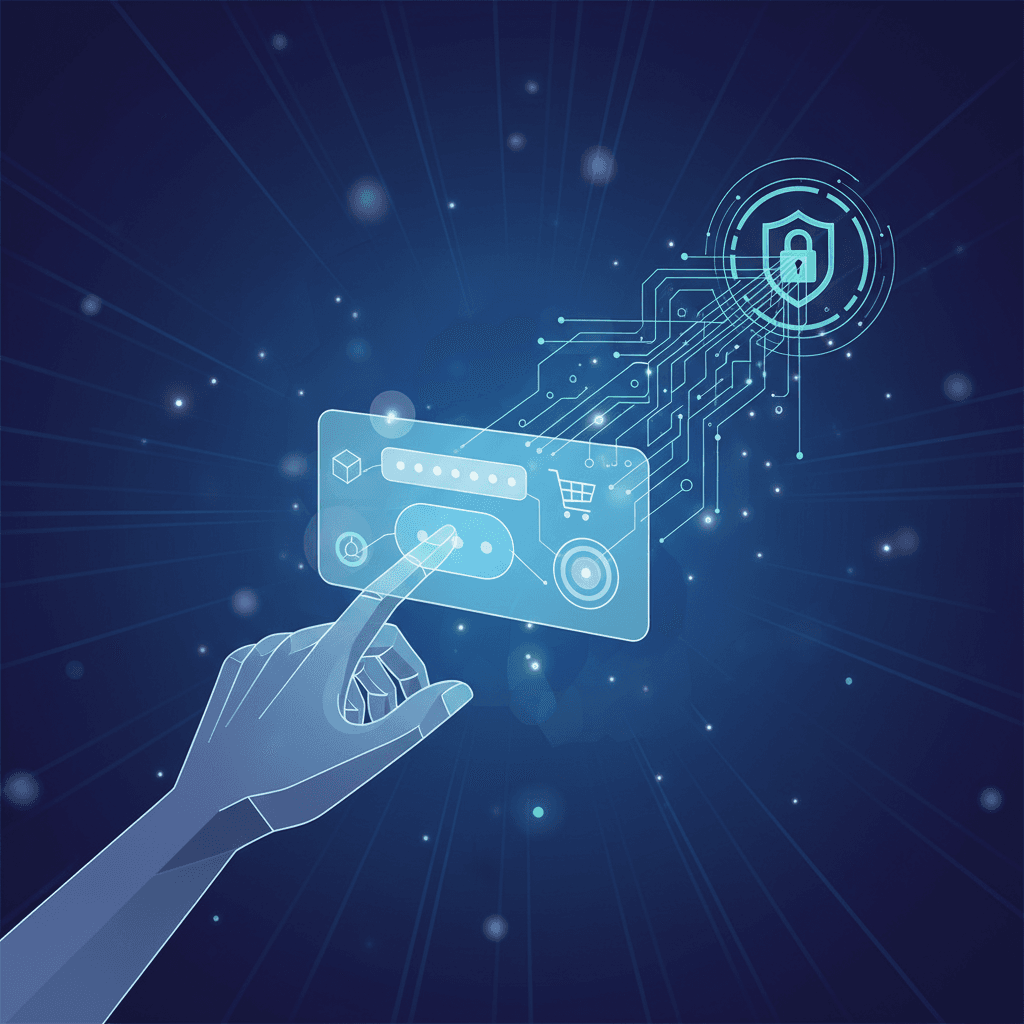PayPal Integrates with ChatGPT, Unlocking Conversational Commerce
Get ready to shop directly in your chat: OpenAI and PayPal embed secure payments, launching the age of conversational commerce.
October 28, 2025

In a significant move poised to reshape the landscape of digital transactions, OpenAI and PayPal are expanding their collaboration to integrate PayPal's payment services directly within the ChatGPT interface. This partnership will allow the hundreds of millions of users who interact with the AI chatbot weekly to seamlessly transition from conversation to purchase, effectively turning the generative AI platform into a vast, interactive marketplace. The integration signals a major leap forward for what many in the industry are calling "agentic" or "conversational commerce," where AI assistants not only provide information but also execute tasks, including making purchases, on behalf of the user. This development is expected to create new sales channels for tens of millions of merchants in PayPal's global network, fundamentally altering how consumers discover and buy products online.[1][2][3][4][5] The collaboration is more than just adding a payment button; it represents a foundational shift in e-commerce, moving the point of sale from traditional websites and apps directly into the flow of a natural language conversation.
At the core of this new functionality is the Agentic Commerce Protocol (ACP), an open standard for programmatic commerce co-developed by OpenAI and Stripe.[1][3][6] PayPal's adoption of this protocol is a crucial step in enabling secure and scalable in-chat payments.[1][6] The ACP establishes a common language that allows a user's AI agent, like ChatGPT, to securely communicate with a business's backend systems to coordinate checkout and payment.[1][2][7] For the user, the experience is designed to be frictionless; they can discover a product, ask questions about it, and then authorize the purchase using their PayPal account, all without leaving the chat window.[4][8] Security is a cornerstone of this process. The protocol is designed so that OpenAI never directly handles raw credit card or financial details.[6] Instead, it generates a one-time payment request that a payment provider like PayPal converts into a secure, single-use token, which is then passed to the merchant to complete the transaction.[6][7][9] This tokenized approach, combined with PayPal's existing buyer and seller protections, such as order tracking and dispute resolution, aims to build consumer trust in this new mode of shopping.[5]
The implications of embedding a transactional layer into a leading AI platform like ChatGPT are profound, heralding a new era of conversational commerce.[8] This model shifts the paradigm from active, search-based shopping, where consumers browse websites and click through checkout flows, to a more passive and delegated experience where the AI acts as a personal shopping assistant.[10][5] Users can state their needs in natural language, and the AI can recommend products, compare options, and facilitate the purchase.[4] For merchants, this integration opens up a powerful new channel for customer acquisition and engagement.[1][8] Tens of millions of businesses that use PayPal will have their product catalogs become discoverable within ChatGPT, scheduled to roll out in 2026, without needing to build individual integrations.[1] This dramatically lowers the barrier to entry into AI-driven commerce and allows businesses to meet customers where they are increasingly spending their time. The move follows OpenAI's earlier e-commerce partnerships with platforms like Shopify, Etsy, and Walmart, indicating a clear strategy to position ChatGPT as a central hub for online retail.[3][11][12]
This evolution in e-commerce offers significant benefits while also raising important considerations around security, privacy, and market dynamics. The primary advantage for consumers is unparalleled convenience, collapsing the journey from product discovery to purchase into just a few taps within a single interface.[2][13] For merchants, the potential to reach a massive, engaged audience and reduce checkout friction could lead to higher conversion rates.[13][10] However, the increasing role of AI as an intermediary in commerce introduces new security and privacy challenges. While the Agentic Commerce Protocol is designed with security in mind, the concentration of user data—including purchasing habits and personal preferences—within AI platforms raises concerns about data governance and the potential for misuse.[14][15] Cybersecurity experts note that AI systems can be vulnerable to sophisticated phishing attacks and that data breaches could expose sensitive user information.[14][16] Furthermore, there is a risk of market consolidation, where AI platforms could gain significant power in directing consumer choice, potentially making it harder for smaller retailers to maintain visibility without deep integration into these new ecosystems.[10][4]
In conclusion, the expanded partnership between OpenAI and PayPal marks a pivotal moment in the fusion of artificial intelligence and e-commerce. By embedding seamless payment capabilities into ChatGPT, the two companies are laying the groundwork for a future where transactions are a natural extension of conversation. The adoption of the secure Agentic Commerce Protocol provides a scalable framework for this new ecosystem, offering unprecedented convenience for consumers and vast new opportunities for merchants. This shift towards agentic commerce will undoubtedly accelerate innovation and competition within the tech and retail sectors as other AI platforms and payment processors respond. While the potential to streamline online shopping is immense, the industry and consumers alike will need to navigate the accompanying challenges related to data privacy, security, and the evolving power dynamics of an AI-driven marketplace. The success of this venture will ultimately depend on building and maintaining user trust as the line between chatbot and digital wallet continues to blur.